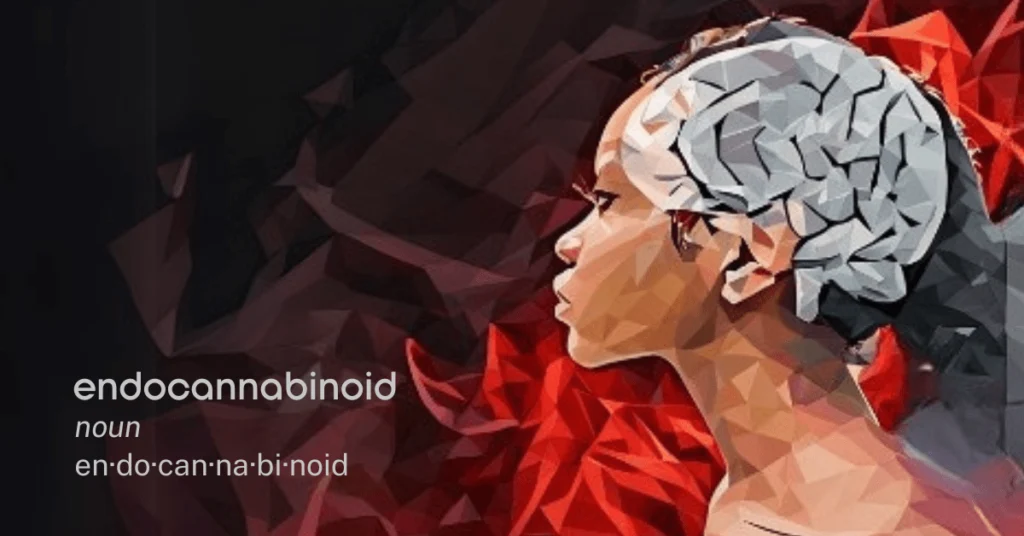By Dr. Kachi – Tampa Medical Marijuana Dr at Royal Care Plus
In recent years, the conversation around cannabis has evolved from social stigma to scientific curiosity. At the center of this transformation is a little-known but powerful network in the human body called the endocannabinoid system. If you’ve ever wondered what is the endocannabinoid system and how does the endocannabinoid system work, this post will break it down from a medical perspective.
As a certified medical marijuana physician here in Tampa Bay, I’ve seen firsthand how understanding the cannabinoid endocrine system can empower patients to make informed decisions about their health. Let’s dive into this fascinating system that plays a major role in maintaining balance throughout the body.
What Is the Endocannabinoid System?
The endocannabinoid system (ECS) is a complex cell-signaling system discovered in the early 1990s by researchers studying THC, the primary psychoactive compound in cannabis. While it was first discovered in relation to cannabinoids, we now know the ECS plays a crucial role in regulating a wide array of physiological processes.
These include:
- Sleep
- Mood
- Appetite
- Memory
- Pain perception
- Immune response
- Inflammation
- Neuroprotection
In simple terms, the ECS is your body’s internal cannabis-like system designed to promote homeostasis — the state of balance across all body systems.
Components of the Cannabinoid Endocrine System
Understanding how does the endocannabinoid system work begins with identifying its three core components:
1. Endocannabinoids
These are naturally occurring lipid-based neurotransmitters. The two most studied are:
- Anandamide (AEA) — Often referred to as the “bliss molecule”
- 2-Arachidonoylglycerol (2-AG)
They are produced on-demand in response to internal or external stimuli.
2. Cannabinoid Receptors
Found throughout the body, these receptors interact with endocannabinoids. The two main types are:
- CB1 receptors – Primarily found in the brain and central nervous system
- CB2 receptors – Mainly in the peripheral organs and immune cells
THC binds primarily to CB1 receptors, while CBD modulates the system more indirectly.
3. Enzymes
These break down endocannabinoids after their job is done. The two main enzymes are:
- FAAH (fatty acid amide hydrolase) – Breaks down AEA
- MAGL (monoacylglycerol lipase) – Breaks down 2-AG
Together, these components form the cannabinoid endocrine system — a key regulator of our biological equilibrium.
How Does the Endocannabinoid System Work?
The ECS works like a dimmer switch, fine-tuning physiological systems instead of turning them on or off. For example, when you are injured, your ECS might trigger localized pain relief and anti-inflammatory responses through cannabinoid receptor activation.
Research from the National Institutes of Health describes it this way:
“The endocannabinoid system is essential for homeostasis and is involved in modulating various physiological processes such as mood, memory, appetite, and pain sensation.”
— NIH: Cannabinoid Signaling in Health and Disease
When this system is out of balance — due to chronic stress, poor diet, inflammation, or trauma — you may experience symptoms such as anxiety, insomnia, chronic pain, or immune dysfunction. This is where medical cannabis may come in.
Medical Marijuana and the Endocannabinoid System
Medical marijuana works by mimicking or enhancing the action of your body’s own endocannabinoids.
- THC fits into CB1 receptors much like a key fits into a lock, producing psychoactive effects and pain relief.
- CBD, on the other hand, interacts with receptors in a way that promotes overall ECS function, reducing inflammation and anxiety without intoxication.
This is why patients with conditions like PTSD, fibromyalgia, multiple sclerosis, or Crohn’s disease often find relief with cannabinoids — they are supporting an already stressed cannabinoid endocrine system.
A 2021 review in Frontiers in Psychiatry noted:
“Deficient cannabinoid receptor signaling may underlie the pathophysiology of disorders such as migraine, fibromyalgia, and irritable bowel syndrome.”
— Frontiers in Psychiatry: Clinical Endocannabinoid Deficiency
Why You Should Care About the ECS
Even if you don’t use medical marijuana, your endocannabinoid system is working for you every day — helping regulate stress, keep inflammation in check, and manage your sleep cycle. If it’s not working well, your overall health may suffer.
Understanding what is endocannabinoid system function is key for anyone interested in holistic health, preventative care, and even mental well-being. At Royal Care Plus, we specialize in helping patients tap into this natural healing system through personalized cannabis medicine.
Supporting Your ECS Naturally
While medical cannabis can be a powerful tool, the ECS can also be supported through lifestyle changes:
- Exercise – Boosts endocannabinoid levels naturally
- Omega-3 fatty acids – Found in fish, flaxseed, and walnuts
- Stress reduction – Meditation, mindfulness, and therapy
- Adequate sleep – Essential for ECS balance
- Limiting alcohol – Excess alcohol disrupts ECS function
A balanced lifestyle enhances your cannabinoid endocrine system, even without cannabis use.
FAQs: Endocannabinoid System
1. What is the endocannabinoid system responsible for?
The ECS regulates mood, pain, appetite, memory, inflammation, immune response, and more. It plays a role in maintaining internal balance, or homeostasis.
2. How does the endocannabinoid system work with THC and CBD?
THC directly binds to CB1 and CB2 receptors, while CBD modulates the ECS indirectly, enhancing its overall function without psychoactive effects.
3. Can a dysfunctional ECS cause disease?
Yes. A poorly functioning ECS may contribute to conditions like chronic pain, anxiety, IBS, and migraines — a theory called “Clinical Endocannabinoid Deficiency.”
4. Is the cannabinoid endocrine system the same as the endocannabinoid system?
The term “cannabinoid endocrine system” is sometimes used interchangeably, though it’s more accurately a description of the ECS’s interaction with hormones and endocrine function.
5. How can I know if my ECS is out of balance?
Symptoms such as chronic inflammation, insomnia, anxiety, or poor stress tolerance may indicate ECS dysfunction. A medical cannabis consultation can help assess your needs.
Final Thoughts from Dr. Kachi
The endocannabinoid system is one of the most important yet underrecognized systems in human health. As a certified medical marijuana doctor in Tampa Bay, I encourage patients to learn more about how does the endocannabinoid system work, especially if you’re managing chronic conditions or looking for natural support.
At Royal Care Plus, we specialize in evaluating your unique medical needs and creating custom cannabis care plans that target the cannabinoid endocrine system for healing, relief, and improved quality of life.
Want to learn more or see if medical marijuana is right for you? Schedule a consultation today at Royal Care Plus in Tampa Bay.
Author Bio:
Dr. Kachi is a board-certified physician and medical marijuana doctor based in Tampa Bay, FL. With years of experience in cannabinoid therapy, he leads Royal Care Plus, helping patients access safe, effective cannabis care.

